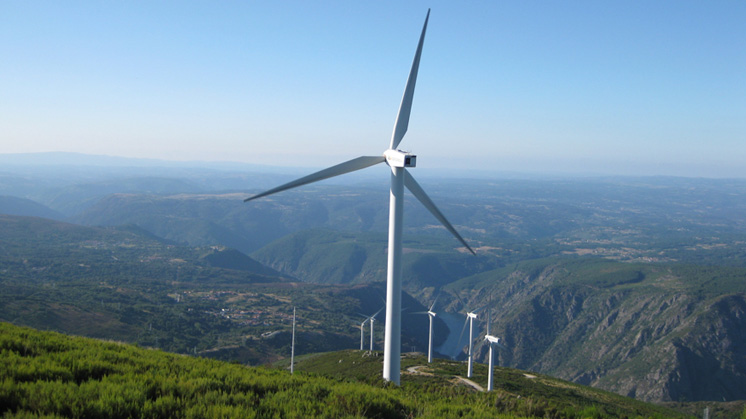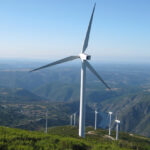Not just for the planet

“Accelerating the transition to renewable energy is now the best bet, not just for the planet, but for energy costs too” notes Dr Rupert Way, postdoctoral researcher at the Smith School of Enterprise and the Environment.
Nowadays, the use of eco-sustainable technological resources refutes the assertion that renewable energy sources are not competitive with technologies from the old paradigm of energy waste. As we closing down 2022 which has witnessed dramatic undisputable climate catastrophes, one cannot but acknowledge that there has never been a greater number of technologies and initiatives spurring the global energy paradigm shift.
According to the peer-reviewed study by Oxford University researchers hereafter, published in the journal Joule, if the energy transition starts at once, creating the necessary renewable energy sources and making the change of paradigm a reality, up to 12 trillion dollars could be saved in energy consumption by the year 2050. As the editors put it forward: “(…) rapidly transitioning to clean energy results in lower energy system costs than a fossil fuel system, while providing more energy to the global economy, and expanding energy access to more people internationally”.
In details, the research team conducted comprehensive analyses of energy-related costs (45 years in solar energy costs, 37 years in wind, 25 years in battery), concluding that related costs consequently drop at an exponential rate, making them drastically more profitable in the long run than any fossil fuels. This results in a reconsideration of the analysis carried out in the past on these energy sources, since there is currently an erroneous vision of the general opinion about what the paradigm shift towards clean energy means.
Banning the use of fossil fuels is a simple decision, as the exploitation of clean energy is not only the most adequate and viable solution to global warming and the pathway to meeting the target of +1.5 C° in 2050, but its impact also exceeds in economic potential compared to the sources inherited from the first industrial revolution.
The competitiveness of eco-friendly technologies should no longer be questioned.
Ingenuity, focused on innovation, allows us to create tools with a double purpose: decisive competitiveness and global ecosystems preservation. Relying on this guiding paradigm, QUANTEEC applies groundbreaking technology to environmental sustainability.

In the world of streaming, dependence on servers is one of the key drawbacks the industry has been struggling with in recent years. The challenges are three-fold: (1) the exponential demand for online video content (82% of Internet data, *15 times value of 2017); (2) consequent servers crashes (over 30 major crashes since 2018) and the urgent need to deploy more; and (3) quality issues refraining adequate profitable monetization.
Additionally, servers have another problem directly related to the quality of service. In many cases, when a CDN is contracted, an audience estimation is being calculated, yet never to an exact figure. Many of these servers run 24/7 without performing any function, consuming valuable energy, and not counting the energy and resources used in their construction, maintenance and cooling. This ultimately leads to the saturation of CDN servers in the occurrence of extra connection demand and the loss of data by the users, which in turn represents valuable losses for the streaming company. For instance, this happened in massive live (particularly sports) events or at the release of certain episodes of very popular series.
In short, servers crash, consumers are unable to access a service they paid for or counted on and, above all, the event itself doesn’t have the number of views it expected, thus impacting the entire advertising industry to loose the expected target range : problematic challenges to some, but opportunities to others…
The QUANTEEC technology is based on the Peer-to-Peer (P2P) concept. Through the optimization of its core structure, our Innovation Department developed the creation of a network, where peers can send video segments in transit (classic P2P) and, in addition, can receive from several peers at the same time (multi-source innovation). In other terms, QUANTEEC allows every device to act as a “smart re-streamer”, reducing the need for large, energy-intensive servers. This results in significant energy savings, with metrics showing up to 50% reduction in energy consumption during streaming. In short, QUANTEEC offers a sustainable and efficient solution for the future of OTT television.
Moreover, through its multi-source innovation, our technology maintains the video quality at its optimum from start to finish. This same innovation allows scaling far beyond the classic limits of P2P. Doing so, energy is saved at the time of transmission, and thanks to the exponential impact of the QUANTEEC scaling feature, significant dependence on CDNs is avoided.
This brings us back to our main point. QUANTEEC saves energy because it prevents unnecessary overuse of servers. At the same time, the broadcaster will be able to benefit from a significant reduction in their CDN costs. Therefore, QUANTEEC technology can actually perform these two actions in parallel as they are part of the same principle, hence making it highly competitive.
Talking about renewable energy implies getting rid of our prejudices. It is about understanding that technology evolves and what was unfeasible yesterday becomes something promising today. From the words of Professor Doyne Farmer, who lead the team that conducted the study at the Institute for New Economic Thinking in Oxford Martin School: “There is a pervasive misconception that switching to clean, green energy will be painful, costly and mean sacrifices for us all – but that’s just wrong… Completely replacing fossil fuels with clean energy by 2050 will save us trillions”.




[…] With our technology, it is possible to reach up to 20 times more viewers without the need to deploy new servers. This way, the use of water and overall energy is reduced for the benefit of the […]